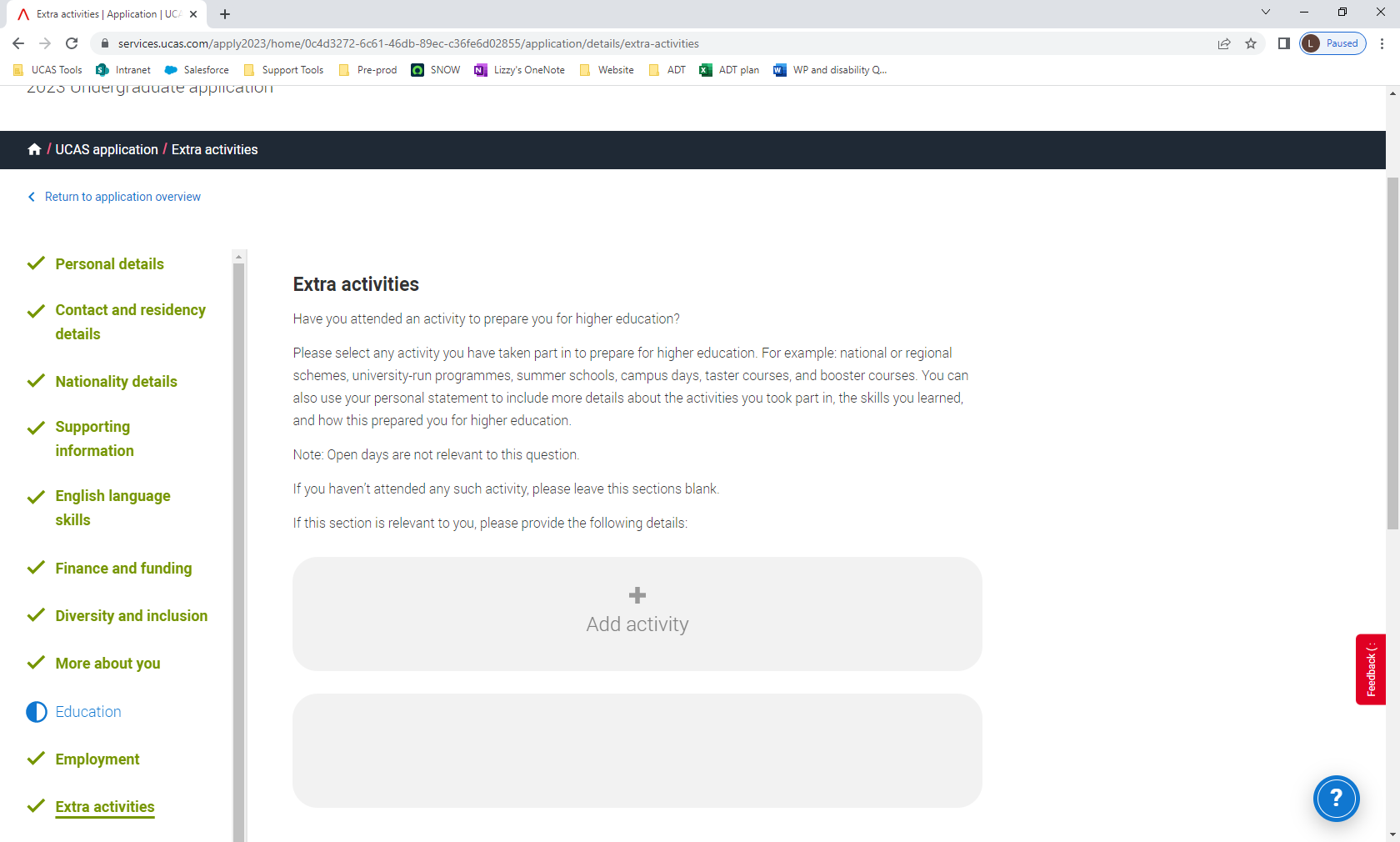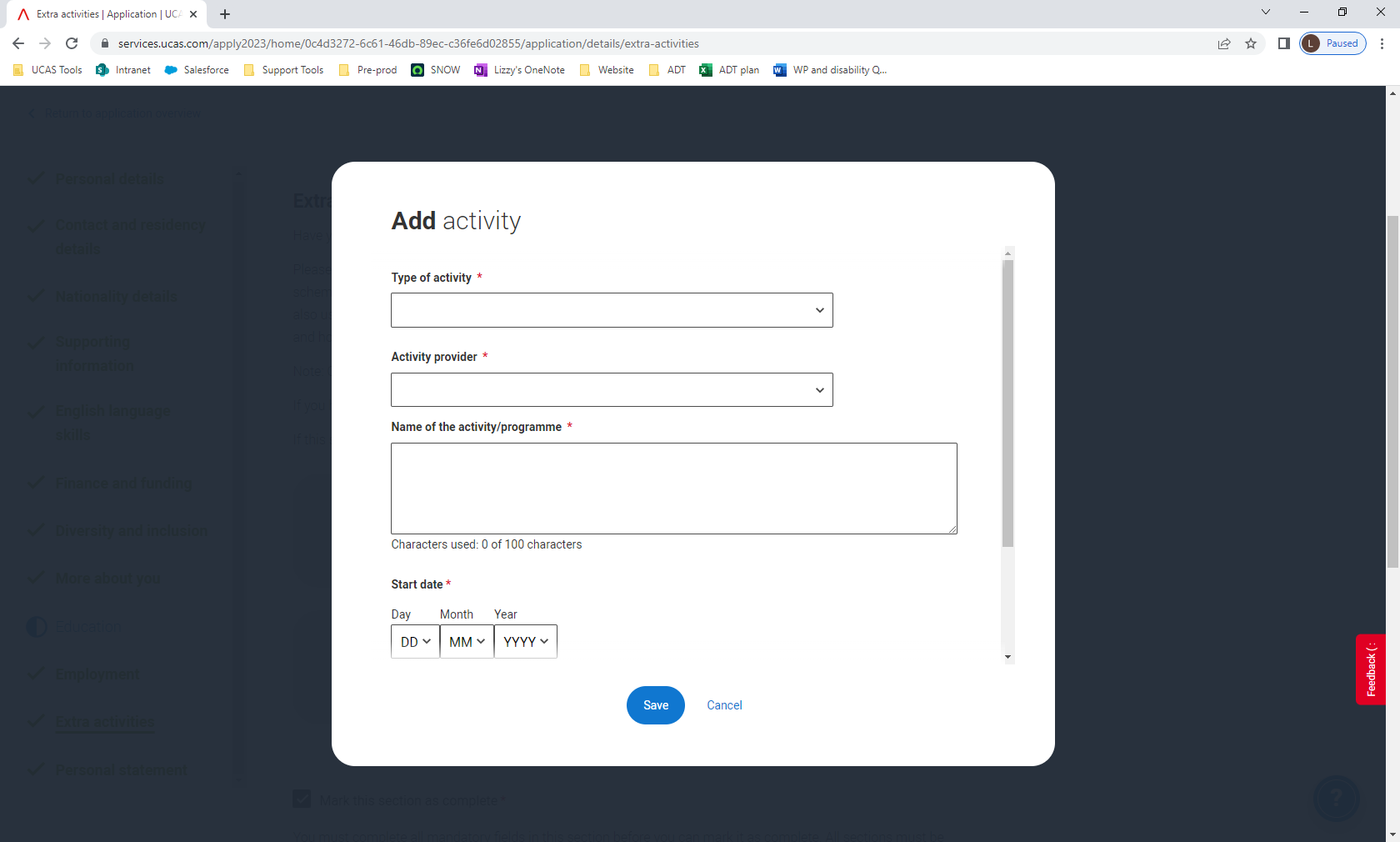HE provider good practice briefing for students who participated in WP and outreach activities
This briefing is for staff working in universities and colleges. Here, we outline common challenges for students who participated in widening participation (WP) and outreach activities, and share examples of good practice being done around the UK to improve access to and success in higher education.
What's on this page?
Who are students who participate in outreach activities?
Outreach and widening participation programmes and activities primarily target disadvantaged young people, those who are under-represented in higher education, and schools and colleges in low HE participation areas. However, not all activities are aimed solely at young people – some are open to prospective students of all ages, and some specifically target mature students.
Course providers increasingly use a student’s participation in outreach activities – alongside other information in their application – to form a more complete picture of the applicant’s achievements. This can lead to contextual (lower) offers or other support, such as a bursary or scholarship. Some university or college-led programmes guarantee participants a contextual offer from their provider.
It is also increasingly common for universities and colleges to offer preferential consideration to those who have participated in schemes operated by other providers or organisations.
The shape and size of outreach activities and programmes in the UK
There is a diversity of widening access and participation programmes and activities.
Who runs outreach programmes?
HE providers
Pathway to Bath is a free online curriculum enrichment programme which gives participants the chance to complete their own research project working alongside university staff. The programme is aimed at Year 12 students taking A levels or Level 3 BTECs, who are considering applying to the University of Bath.
Charitable organisations
The Sutton Trust Summer Schools offer over 40 free subject-specific residential courses across 13 HE providers in the UK for Year 12 students in state-maintained schools. The Sutton Trust and their partners cover participants’ travel costs, accommodation, food and activities at any partner university.
National partnerships
The UKWPMed initiative brings together six UK medical schools that provide sustained support programmes to help students from under-represented groups prepare to make their applications. Participants will receive a guaranteed interview and reduced offer at any of these six medical schools.
Regional partnerships
Uni Connect (formerly known as the National Collaborative Outreach Programme) comprises 29 partnerships between HE and FE providers, and other local organisations and employers. Each NCOP delivers outreach programmes to young people aged 13–18 in local areas of low participation in HE.
What are they?
Subject specific
The University of Edinburgh’s Science Insights work experience programme is designed to give 5th year students insight into the work and life of research scientists. The week-long summer holiday programme offers varied activities across four campuses, providing a real insight into research and work in the biological sciences, medicine and veterinary medicine.
General
In the University of Manchester’s Gateways Programme, talented local students from under-represented backgrounds in Years 7 to 11 participate in a series of academic enrichment and HE awareness activities. The programme covers: university life, developing academic skills, raising awareness of the teaching, studying and living environments, and broadening students’ horizons.
Specific groups
NCOP York and North Yorkshire has worked with the Service Children’s Progression (SCiP) Alliance to run ‘Creative Forces Days’ for service children in local primary and secondary schools. These include a visit to either the University of York or York St John University to familiarise students with the HE environment. Feedback shows a positive impact, with 86% of participants stating they will ‘definitely’ or are ‘likely’ to apply to HE, and 54% reporting the event had affected their decision.
When are they?
Age 16+
Step Up to Swansea University is a series of day events and a short residential for Year 12 students in South West Wales. Students attend subject taster events, study skills sessions and a well-being day. Additional events are available for Year 13 students, such as mock interviews. Successful completion of the programme means that applicants may claim a Tariff point reduction for certain courses at Swansea University.
Age 14–16
The STEM Potential programme at Imperial College London offers participants the opportunity to attend five events each year, including STEM masterclasses, lectures, university experience taster days, and a Year 10 summer school. Pupils work closely with academic staff and students, and receive help with their university applications.
Primary
The University of Birmingham offers Year 6 pupils a University Experience Day to help with the transition to secondary school. The programme aims to make them feel excited about their future and encourages them to excel in secondary education. The programme includes a campus tour, an interactive theatre performance, and a science lecture.
Mature
Get Started from Birkbeck, University of London offers free workshops for prospective applicants interested in undergraduate courses at Birkbeck. Workshops include writing a personal statement and student finance. Participants may also access a range of other events to help them prepare for study, including employability workshops and public lectures.
Where are they?
Local
The University of Cambridge’s Insight Explore programme is offered to students in Years 9–11 from selected schools. Over two years, participants visit the university to attend events that will develop their academic skills and help them learn more about university life. They can explore new subject areas and talk to academic staff and students. The programme also addresses applying to the University of Cambridge and information about student finance.
Regional
Next Steps South West is the NCOP for Cornwall, Devon and Somerset, where 14 partner universities and colleges deliver events and activities to young people aged 13–19 across the region. These are designed to promote HE and inspire them (and their parents or carers) about their future options for degree-level study. The programme specifically targets schools and colleges to reach those with the ability to progress to HE but who are less likely to apply.
National
The Brilliant Club is a university access charity that works with more than 800 schools and 40 universities across the UK. Their Scholars Programme places doctoral and post-doctoral researchers in state schools to deliver programmes of university-style tutorials, which are supplemented by two university trips. Some universities may give reduced offers to applicants who have successfully completed The Scholars Programme.
In schools
In Ulster University’s Tutoring in Schools programme, pupils and teachers in target primary, post-primary and special educational needs schools across Northern Ireland, work with Ulster University students volunteering on school projects.
The programme encourages positive interaction between university student tutors and school pupils, where the former can act as positive role models and ambassadors. The aim is to help raise aspirations, develop interpersonal and communication skills, and improve self-confidence.
Feedback has shown this to be a positive and rewarding experience for all involved.
On campus
The University of Southampton’s Access to Southampton (A2S) programme includes a Year 12 residential summer school , which offers an opportunity to see what life is like as a University of Southampton student.
Participants attend lectures and seminars in chosen subject areas, complete an assignment, attend evening activities which give an insight into university social life, and spend time with current students.
University accommodation is offered to summer school participants (where possible).
Other settings
The Social Mobility Foundation’s Aspiring Professionals Programme (APP) aims to introduce young people to professional careers, targeting those with the potential to join, but without the networks to get there.
Activities include email mentoring by a professional, tailored skills sessions and career workshops, HE application support, and internships with top employers.
Typical eligibility criteria
Eligibility criteria will differ for the activities and programmes offered. However, the list below gives an indication of some of the measures of disadvantage that are commonly used to ascertain a student’s eligibility.
- Eligibility for free school meals (FSM) or on the Pupil Premium register
- Living in low participation postcodes (e.g. as defined by POLAR4, SIMD, ACORN measures)
- Studying in a school with low HE progression or with a high population of disadvantaged students.
- No parental experience of higher education.
- Low parental income and/or in receipt of certain benefits.
- Specific groups of under-represented students, for example:
- care experienced students and estranged students
- under-represented ethnic backgrounds
- refugees and asylum-seeking students
- students with caring responsibilities
- disabled students (including learning disability)
- service children
- students from a Gypsy, Roma or Traveller community
- mature students
The application question, supporting text, and future plans
The new question
We've introduced a question into the undergraduate application to support the identification of students who have participated in any WP or outreach activities in preparation for higher education.


Considerations ahead of the introduction of this question and good practice
To support pre-applicants
- If you are running your own activities and programmes, how are you raising awareness among schools and colleges?
- Are the details of your own activities and programmes easily accessible on your website?
- Do you clearly tell students who participate in your programmes to put the details on their UCAS application – and explain how to do this?
To support applicants
- Do you have criteria in place to make differential offers based on participation in an outreach activity?
- Are you aware of other outreach programmes offered that students may declare on their applications?
- Do you have systems or processes in place to receive and use this data?
- Do you take into consideration the intersecting measures of disadvantage the applicant may have (e.g. eligibility for free school meals [FSM] and caring responsibilities)?
To support transition and ongoing study
- Are students made aware of any provision through which they can prepare for their studies ahead of transition (e.g. summer schools, workshops)?
- Do you contact students ahead of their arrival to provide details of health and well-being support services available through the university, and to encourage contact to discuss any concerns or needs?
- Do you track students’ progression over the course of their studies to ensure they are adequately supported? How do you support these students with making the transition from higher education into employment (e.g. work experience, careers advice)?
Useful links and support
- OfS report into perceptions of HE outreach and access activity.
- OfS article discussing the impact of, and next steps for, the NCOP.
- Advance HE’s Higher education outreach to widen participation: toolkits for practitioners support the management and delivery of outreach work.